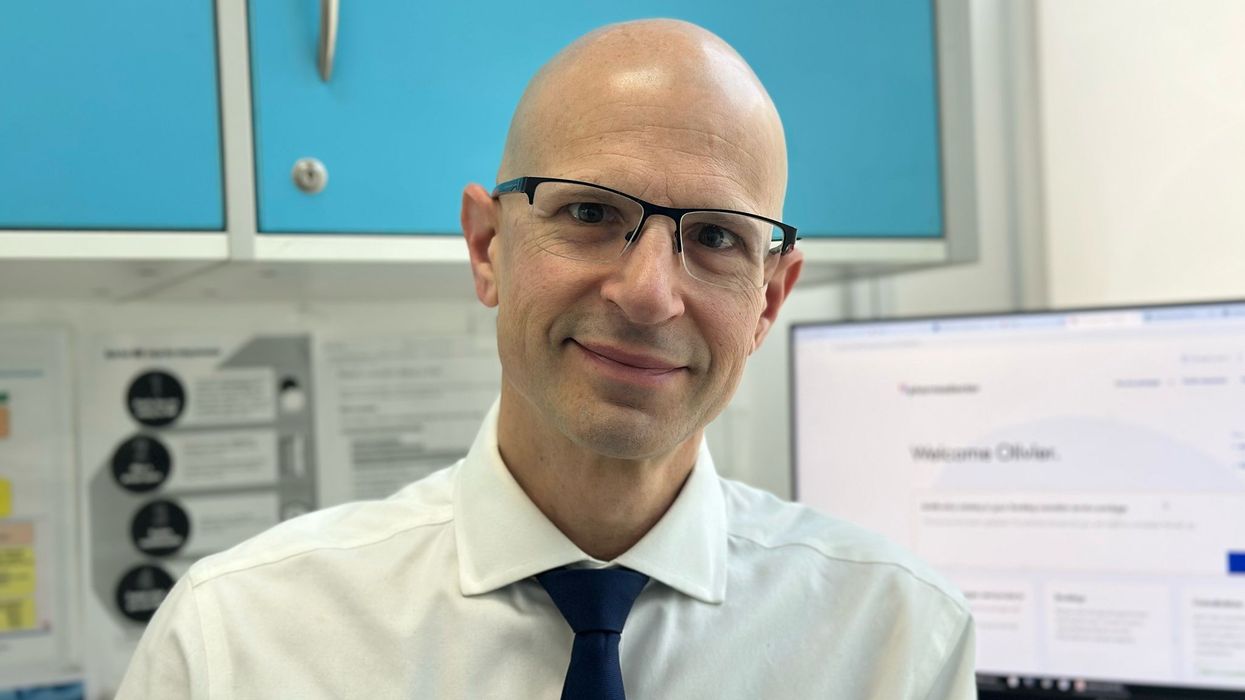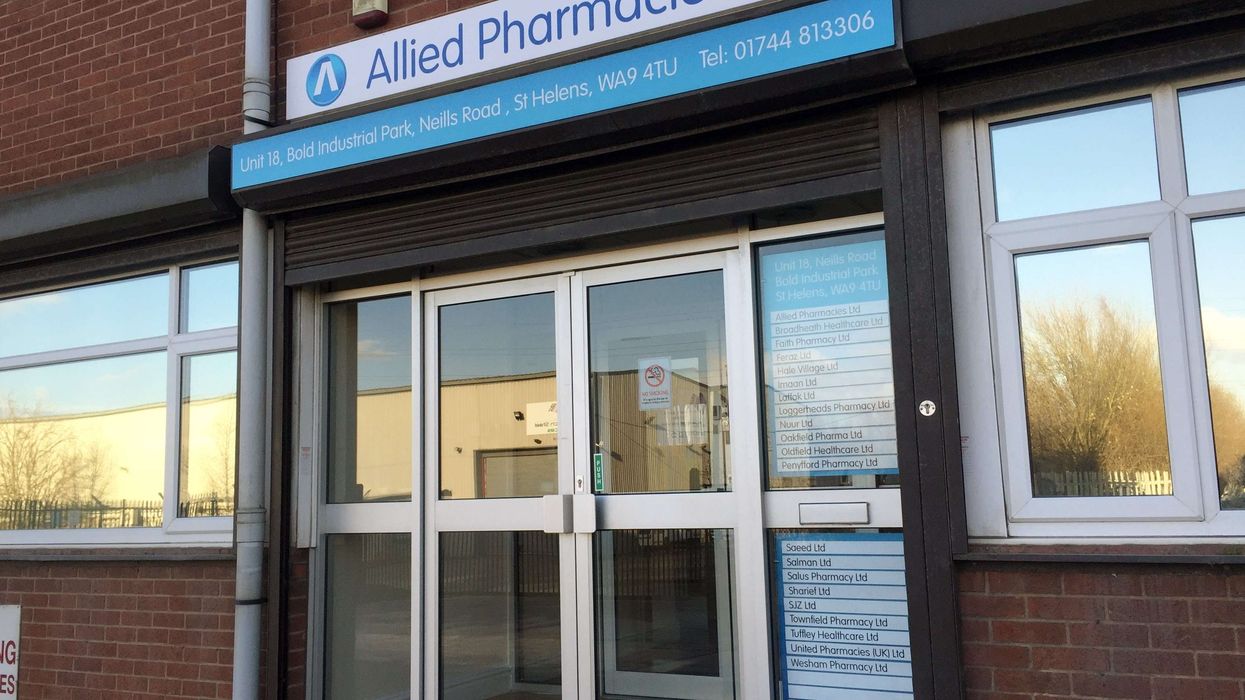Dr Keith Ridge, the chief pharmaceutical officer at NHS England, has praised community pharmacies for demonstrating their "essential clinical role" at a very challenging time.
"We have so much to be proud of as pharmacy and medicines professionals... your response to the Covid pandemic has been of the highest order," he told delegates at the Pharmaceutical Services Negotiating Committee (PSNC's) local pharmaceutical committee (LPC) Conference 2020, held virtually on Wednesday (September 16).
"I want to say a huge thank you for all that you've done professionally and personally to support patients, families, carers, your local areas and the teams over the last few months," Dr Ridge added.
Stressing that community pharmacies will need to "maintain rigorously your focus on infection prevention and control," he acknowledged: "It's been incredibly difficult overwhelming and a very challenging time for community pharmacies but you have demonstrated your essential clinical role in the NHS system, as well as crucially, keeping patients supplied with medicines and as importantly, healthcare advice."
It's not over yet
"But to say the least, it's not over," England's chief pharmaceutical officer warned of the challenges ahead, "as we head into these critically important winter months," hinting at an usually busy annual flu vaccination season, which began in earnest on September 1, as well as a potential second wave of Covid-19.
Dr Ridge asked pharmacy owners to get their staff vaccinated while remaining "vigilant and safe with regard to any second wave" and advised that pharmacies should sign up to "the PPE portal immediately, as an emergency supply route."
Video consultation
He said changes were made to support pharmacies being Covid secure, such as with the move to verbal consent as well as by making the provision of some services remotely.
Dr Ridge revealed that the NHS was currently working on introducing video consultation for pharmacists. "We're currently working to introduce the ability for pharmacists to carry out video consultations from other premises, such as their own homes and we think this will be another major step," he said.
GP referrals in autumn
England's chief pharmaceutical officer told the virtual conference, via a video message, that plans were in place to roll out GP referrals under the advanced community pharmacy consultation service (CPCS) in the autumn.
He also revealed that three further clinical services were being piloted this autumn: 1) blood pressure testing, 2) referral from hospital to community pharmacy for smoking cessation, and 3) a new role in supply and stocks of end of life medicines for palliative care.
"If these proved to be effective, we will introduce them across the country, as soon as possible," Dr Ridge told the virtual conference.
Clinical future
Despite the ongoing challenges posed by the pandemic, Dr Ridge saw an an opportunity to further demonstrate how community pharmacy could work in collaboration with general practices and deliver new and expanded NHS clinical services.
"As part of the Pharmacy Quality Scheme, we are focusing on encouraging and incentivising collaboration between pharmacies and general practices and establishing community pharmacies as integral to the PCNs up and down the country, both in relation to flu vaccination uptake for patients aged 65 and over and via business continuity plans to help manage temporary closures during Covid."
He said the LPCs this autumn would have a major role to play as the primary care networks (PCNs) press ahead with the rollout of the new phase of the Network Contract Directed Enhanced Service (DES), a cornerstone of the GP contract framework.
As the focus this year for the PCNs will be on enhanced health in care homes, early cancer diagnosis and structured medication review (or SMR) and medicines optimisation, hundreds of clinical pharmacists and pharmacy technicians are being hired to deliver the SMR and care home service requirements.
"This is great news for the profession," he said, adding, "it will lead to a paradigm shift" in not only the prescribing and dispensing of medicines that's necessary but also in agreeing with patients to stop medication when no longer needed.
Additionally, he said the introduction of discharge medicine service would see "pharmacy teams working clinically with their professional colleagues in hospitals and PCNs to prevent harm associated with transfers of care."
In the guidance to support the rollout of structured medication reviews, he said the NHS has "made it a requirement that PCNs should work with community pharmacies" to ensure alignment to support effective transfers of care between hospital and community and to connect patients appropriately to NMS which supports adherence.
Education and training
"To support such a clinical future," Dr Ridge said, "the four chief pharmaceutical officers were working with professional regulators, the RPS (Royal Pharmaceutical Society), statutory educational bodies, higher educational institutions and employers to accelerate the reform of initial education and training of the MPharm (degree) and the pre-reg year."
He added that the reforms will ensure "a five year continuum of education that delivers increased clinical training across those five years," and emphasised the the need for more independent prescribing pharmacists who can contribute to medicines optimisation.
"I really want to see employers and the NHS work together on this, it's in everyone's interest," Dr Ridge said, adding: "It will of course take some time to get everyone who wants to do it together through such a program."
He noted that professional rewards from this for individual community pharmacists will be considerable. "And importantly, patients, and the public will benefit."
"Shocked and chastened"
Dr Keith Ridge also revealed that he had been "shocked and chastened by the evidence of health and workplace inequalities" within the sector. However, he added that the NHS was collaborating with its various arms to develop an inclusive professional practice "to provide truly inclusive healthcare services to our diverse populations."
"It's particularly important to ensure staff and vulnerable groups, such as black Asian and ethnic minority (BAME) employees, are adequately protected this winter and appropriate risk assessments continue to be prioritised."
“It is our responsibility to provide essential vaccination service to all, especially the vulnerable people. We also need to ensure the safety of diverse community staff members including those from BAME backgrounds.”











